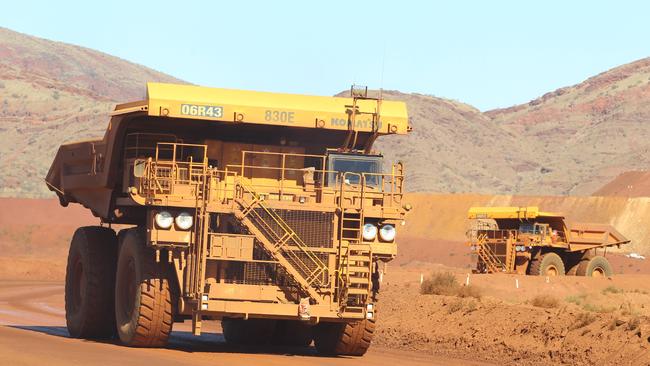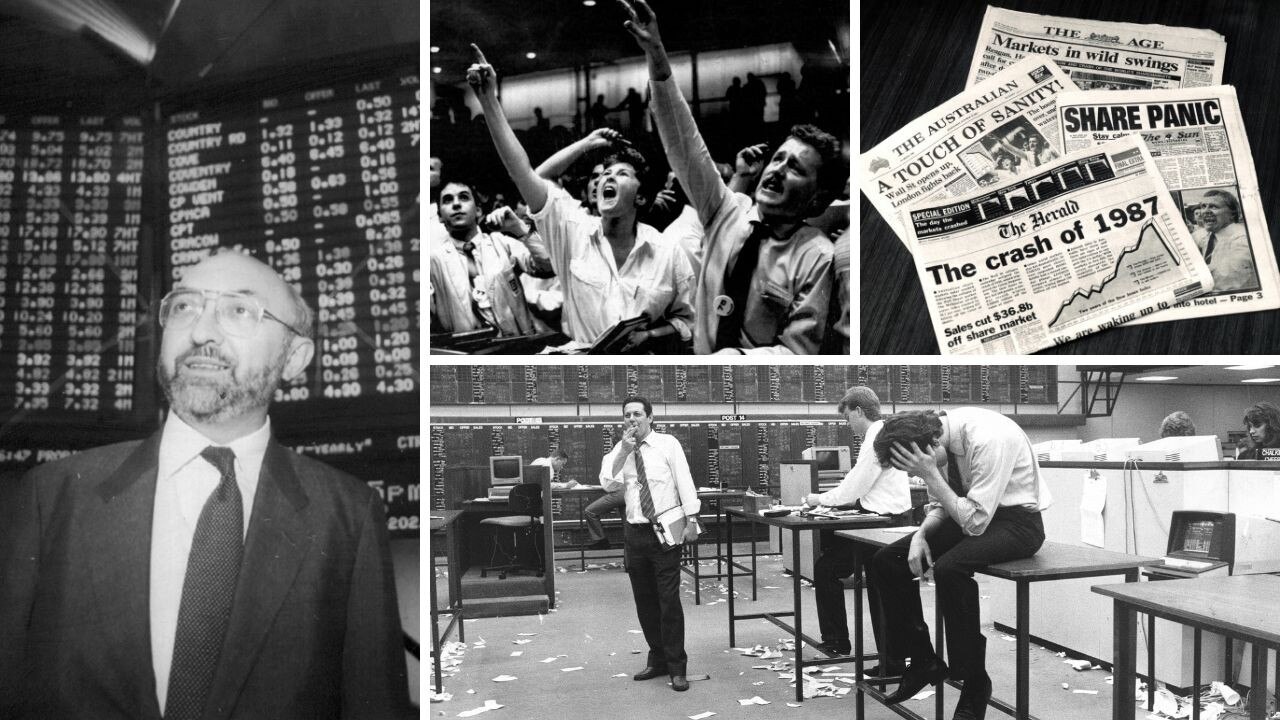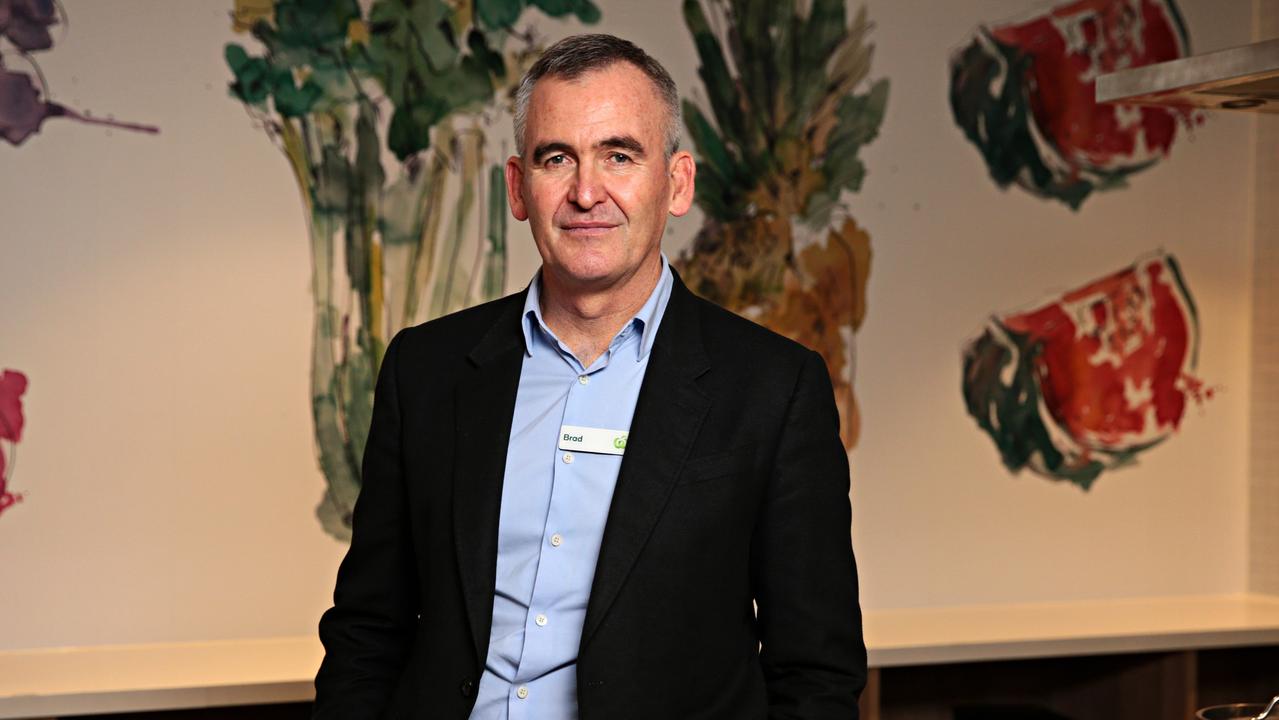Fantastic news for Aussies on inflation and trade
The latest round of economic data should be hailed as fantastic good news. What’s not to like about inflation ticking over at barely 1 per cent a year and a trade surplus of $100bn a year?

Terry McCrann
Don't miss out on the headlines from Terry McCrann. Followed categories will be added to My News.
In a more normal, more sane world, Wednesday’s round of economic news from the Australian Bureau of Statistics would be hailed as all-round fantastic good – heck, great - news.
What’s not to like in inflation ticking over at barely 1 per cent a year?
Feel free to start a queue demanding ever-escalating petrol prices, food prices and indeed the prices of everything; so that your weekly wage or salary buys less and less as each month passes and the spending power of any savings you have is continually slashed.
What’s not to like in a trade surplus running at around $100bn a year?
That’s to say, we are earning from exports that much more than we spend on imports each year, at the moment.
No Venezuela or Zimbabwe on our horizon.
What makes the surplus particularly attractive - and delicious - is that it’s mostly coming from those crazy prices we get on selling what is essentially WA dirt, and selling it to China of all places.
They must be spitting chips every time they press that ‘send’ key on the multi-billion dollar bank payments to our big three Pilbara iron ore miners.
Normally, a big trade surplus actually hurts in real terms: it means sending goods and services made in Australia to overseas buyers that could have been used to improve the lives of Australians.
Exporting is what you have to do to pay for the imports we need (like machines and computers) and just like (those big TVs and every car now sold in Aus).
If we had to give Australian-made cars, TVs etc and even more of our primary rural products to buy our imports, that would be one painful thing.
But really, is anyone going to miss another tonne or 100 or even a billion of WA dirt? It’s not like we could use or eat it here.

Selling such an abundant mineral as that Pilbara iron ore at such a ridiculous price – now around $US200 ($250) a tonne – is like an economic freebie; and it’s also pouring billions of Chinese dollars, yet more deliciously, into the federal (and WA state) budgets to boot.
Will it last? Yes, for some time yet.
Our main competitor, Brazil’s Vale, is an environmental basket case; and it’s going to take most of the 2020s, at best, for China to ‘Belt and Road’ new iron ore mines it desperately wants in Africa.
The low CPI inflation will cement the Reserve Bank’s determination to keep its official rate at effectively zero (0.1 per cent) for years yet.
That’s because it’s mandated to get inflation UP into the 2-3 per cent range.
But the very fact of that promise should make you very happy that it’s failing to succeed.
Why would you want inflation to go up to even the seemingly ‘modest’ 2-3 per cent, as there’s no guarantee – as the RBA ‘hopes’ - that wages would as a cause or as a consequence be rising by 3-4 per cent a year in tandem?
The one thing you do know about inflation is that it erodes the spending power of your wage and any savings you have.
I’m perfectly happy for it not to be doing that. And so should you – especially if you’re a pensioner or a self-funded retiree.
Or a small business not getting a wage, but paying them, and coming out of a year when you have been battered by government-ordered lockdowns.
The second thing we should have learned from history is that you are playing with - a very, very dangerous – fire when you even just allow inflation to start rising, quite apart from actually trying to force it to rise.
I much prefer the reality of low inflation, given stagnant wages (and zero bank deposit rates), than the ‘promise’ – really, nothing more than hope – of rising wages (and eventually, somewhat higher bank deposit rates), to make up for higher inflation.
Originally published as Fantastic news for Aussies on inflation and trade



